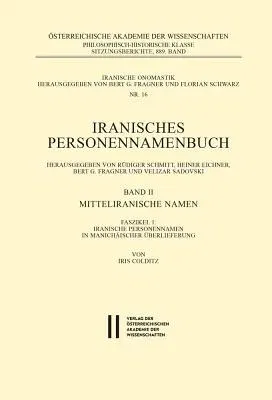This volume presents for the first time a full collection of the
personal names attested in Iranian sources of Manichaeism, an ancient
dualistic and syncretistic world religion (3rd-14th century). This
extremely heterogeneous corpus from the Central Asian Turfan oasis
(Xinjiang, China) goes back to the golden age of Manichaeism in the
Uygur steppe empire and the kingdom of Qo?o (8th-11th century) but can
be partly traced back to more ancient originals. It comprises ca. 4700
text fragments in Middle Persian, Parthian, Sogdian, Bactrian and New
Persian written in Manichaean, Sogdian and Old Turkish runic scripts.
The 766 entries contain Iranian, hybrid, and non-Iranian names, which
reflect the ethnic and religious diversity of the peoples along the Silk
Road. The name bearers are historical persons as well as fictitious
characters from myth and literature. Obsolete and differing readings as
well as ghost names are specifically marked. The presentation of the
names follows the guidelines of the Iranisches Personennamenbuch. Each
entry lists transliteration, transcription and all references of the
name, including spelling variants, text duplicates and versions in other
scripts or languages, followed by prosopographical data: titles,
designations of offices or professions. Reference is made to indirect
transmissions of the name (Nebenuberlieferung) in non-Iranian
Manichaica, the writings of Arabic historians and in antiheretical
Christian and Zoroastrian scriptures. At the end follows the
morphological and etymological interpretation of the name. The explored
material is displayed in detailed indexes. The volume is of special
interest to specialists in Iranian studies, linguistics, religious
studies and history.

